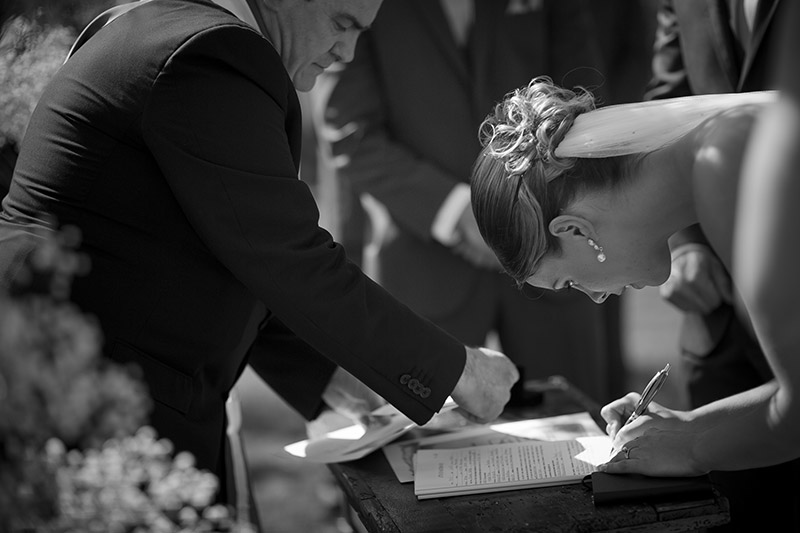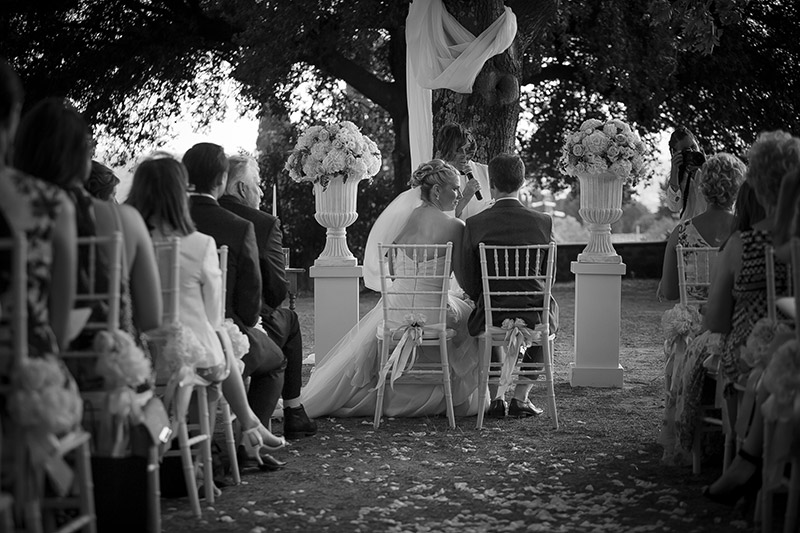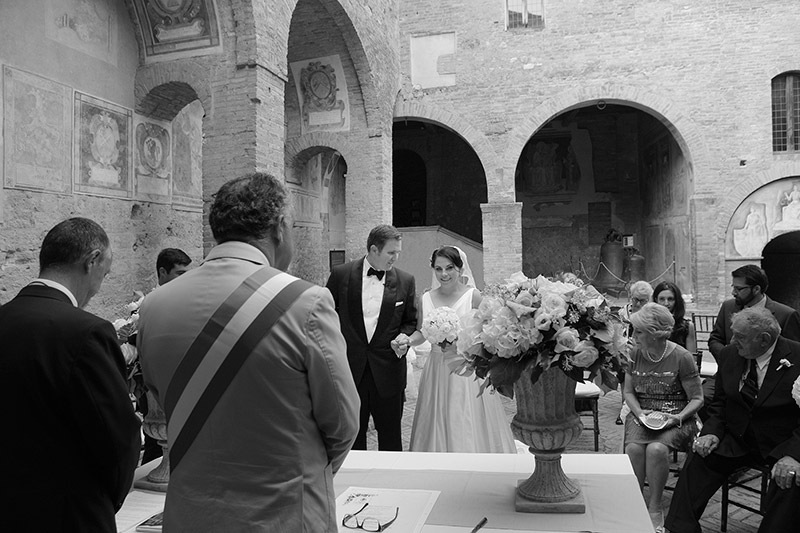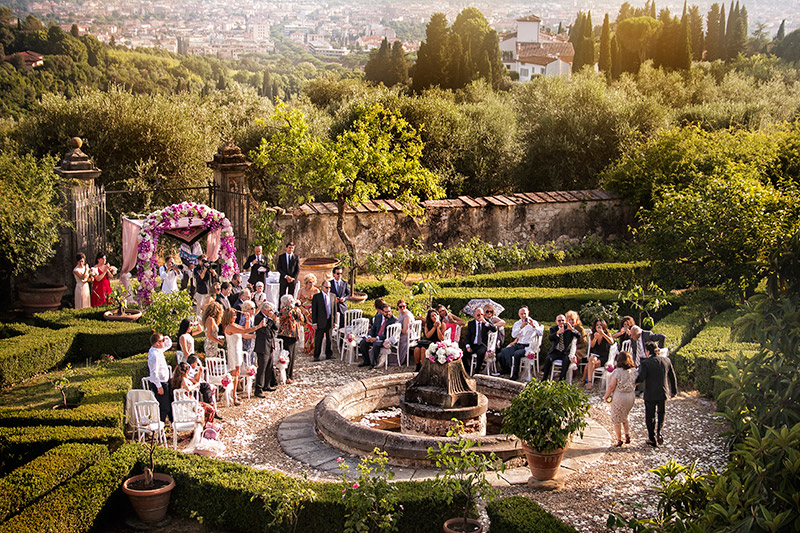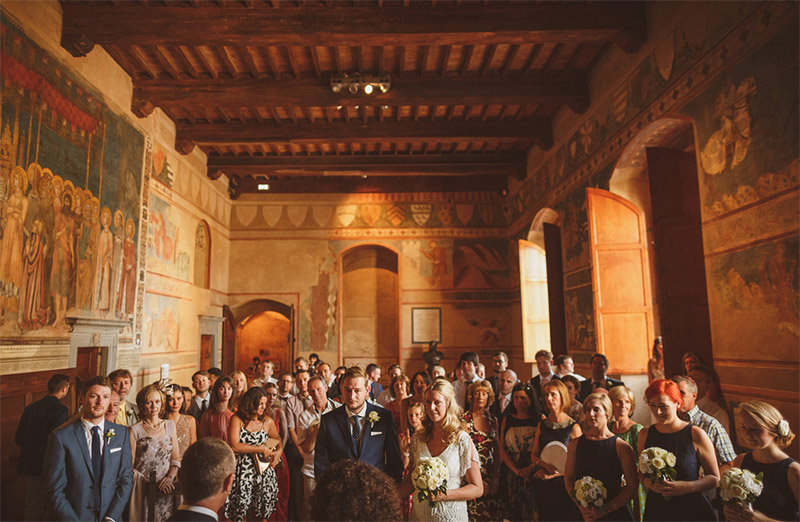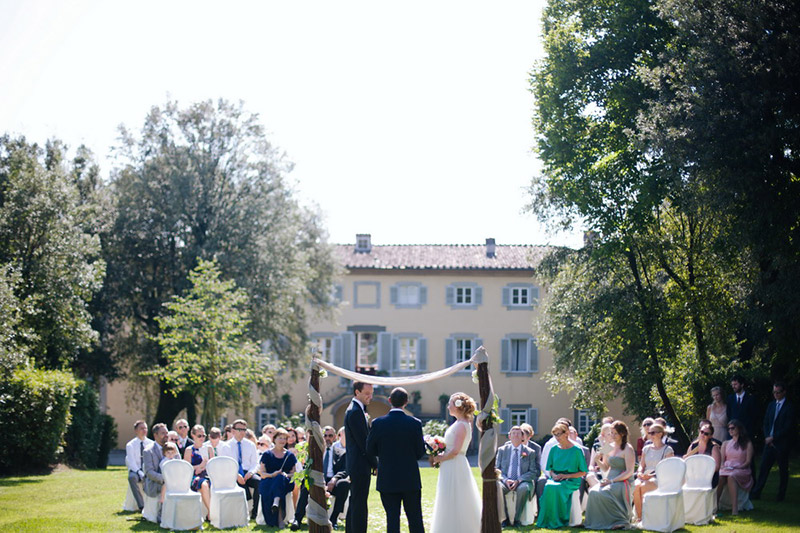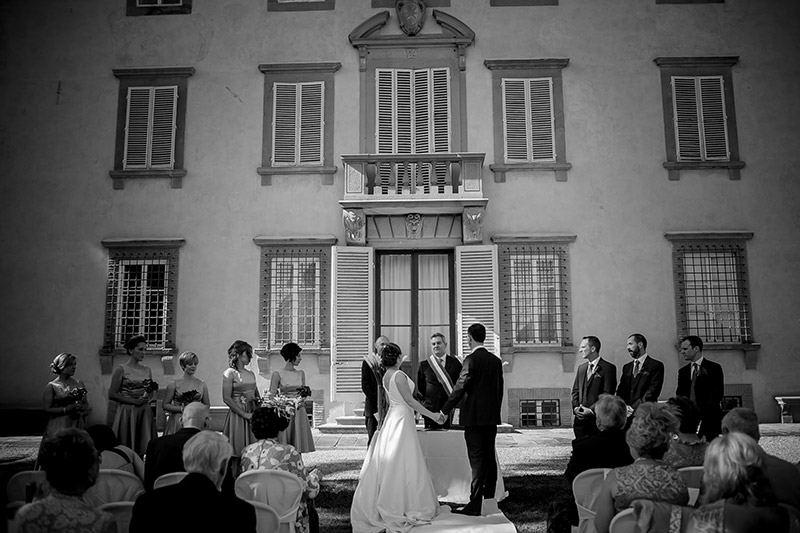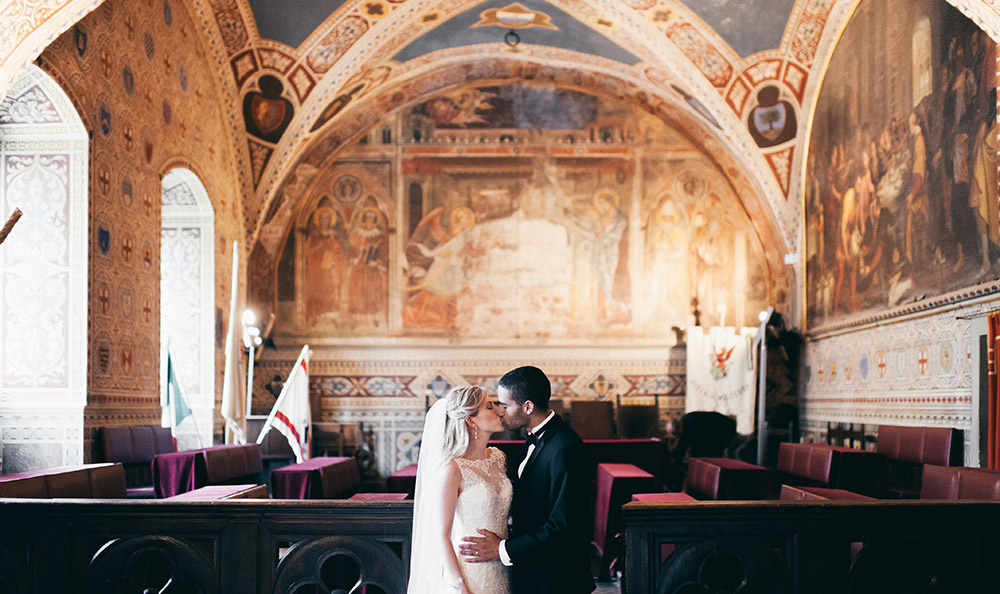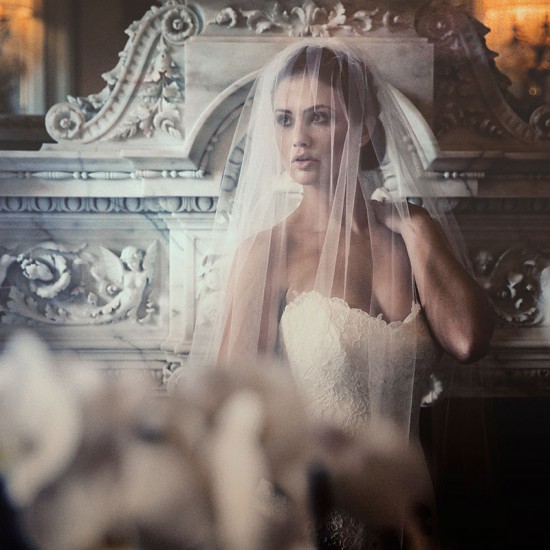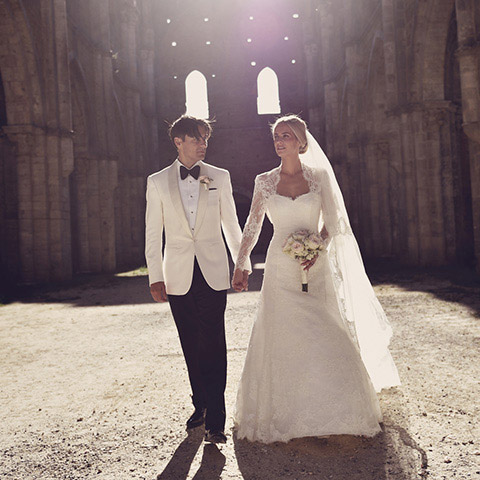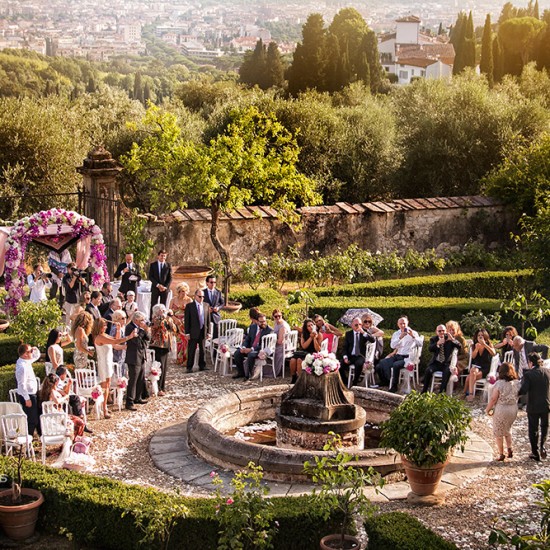
The symbolic blessing is the simplest, most intimate and most flexible way to arrange your event in Italy.
Italyweddings will arrange the celebrant – a non religious, mother tongue English speaker, and in the weeks and months leading up to your wedding, we will work with you on all aspects of the celebration. You’ll be free to choose the text of the ceremony, and we will assist you with the details such as:
Music: classical musicians, such as harp, violin, viola, cello, Spanish guitar, and combinations of these. Music: help with the repertoire, and timing during the blessing.
The bride being given away, and other entrances.
Readings, prayers and blessings.
Exchange of vows and personal pledges.
Ring exchange.
A signed certificate.
The symbolic blessing is entirely suitable for a number of situations. We are more than happy to work with you, regardless of gender, religious, secular or nondenominational background The content and style of the blessing is really limitless, and depends on the requirements and personal situation of the couple. We have a few standard texts for the blessing and for readings that we feel are appropriate, but each couple is encouraged to give their personal input.
As for the location of the blessing: a symbolic blessing may be held anywhere that fits your needs – most often outdoor villa settings, overlooking the Tuscan countryside, on the terrace of a medieval castle, on beaches, or in unconsecrated chapels at private villas and hotels.
Our in-house floral designed will be on hand leading up to the event to discuss with you the style and aesthetics of the event. We can arrange arches, chuppahs, marquees, or just allow the Italian countryside to be your frame.
Civil weddings
The civil service in Italy is a fully legal marriage, recognized throughout the world. The civil ceremony, by law, must takes place in a town hall, or a property belonging to the town hall, and will be presided over by the vice-mayor, or his substitute. In a few special cases, certain villas have been given special permission to host civil weddings.
The couple must complete certain documents here in Italy prior to the ceremony, and Italyweddings will assist fully with this, including, for American citizens, the Atto Notorio and Nulla Osta. For other nationalities, the process is quite simple, and the couple should consider being in Italy two or three days at least prior to the ceremony.
The ceremony is beautifully written, and full of significance – much more than a simple Justice of the Peace or Registry office ceremony you may be accustomed to. The couple are free (and encouraged) to add readings and music, and many of the elements of a religious ceremony may be included: the bride being given away, exchanging of personal vows, and exchanging of rings.
The witnesses are required for the civil wedding – usually two members of the wedding party, typically the maid of honor and best man, but often parents. If you do not have guests present, Italyweddings will take care of the witnesses.
You should consider:
Leave enough time during your stay to be present at your National Embassy to obtain the “Nulla Osta”. This document will then be translated into a legally valid Italian document, by the staff of Italyweddings, and presented in the town hall where you will get married. In all, you should plan to be in Italy 3 days prior to the wedding.
Plan enough ahead: Italyweddings needs at least a month’s notice for a civil service, to book appointments at the various offices.
Religious weddings
A religious wedding may be a Protestant ceremony, Jewish wedding, or Roman Catholic rite. By Italian law, the only church permitted to perform a legally binding Church wedding is the Catholic church.
A Protestant blessing is the most common type of blessing performed, and has a great degree of flexibility. The blessing can be held in a Protestant church in Florence, or in the halls and grounds of villas and hotels, or in the private chapels of many of the villas we work with.
The rite is identical to a Protestant blessing you may be familiar with, and will include prayers, readings, vows, exchange of rings, the bride being given away, the choice of music, and in many cases, if the couple prefer, Eucharist may be included.
In the Protestant Church it is required that one, at least, of the parties must be a baptized Christian; that the ceremony be attested by at least two witnesses; and that the marriage conform to the laws of the State and the canons of this Church. A priest or a bishop normally presides at the Celebration and Blessing of a Marriage, because such ministers alone have the function of pronouncing the nuptial blessing, and of celebrating the Holy Eucharist.
One or more passages from Holy Scripture is read. If there is to be a Communion, a passage from the Gospel always concludes the Readings.


